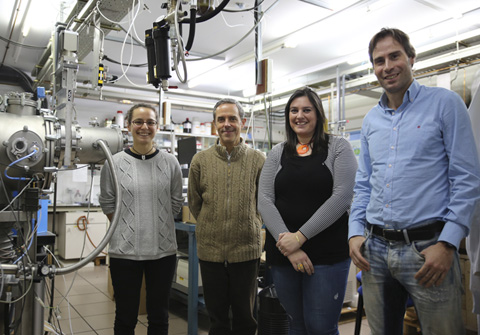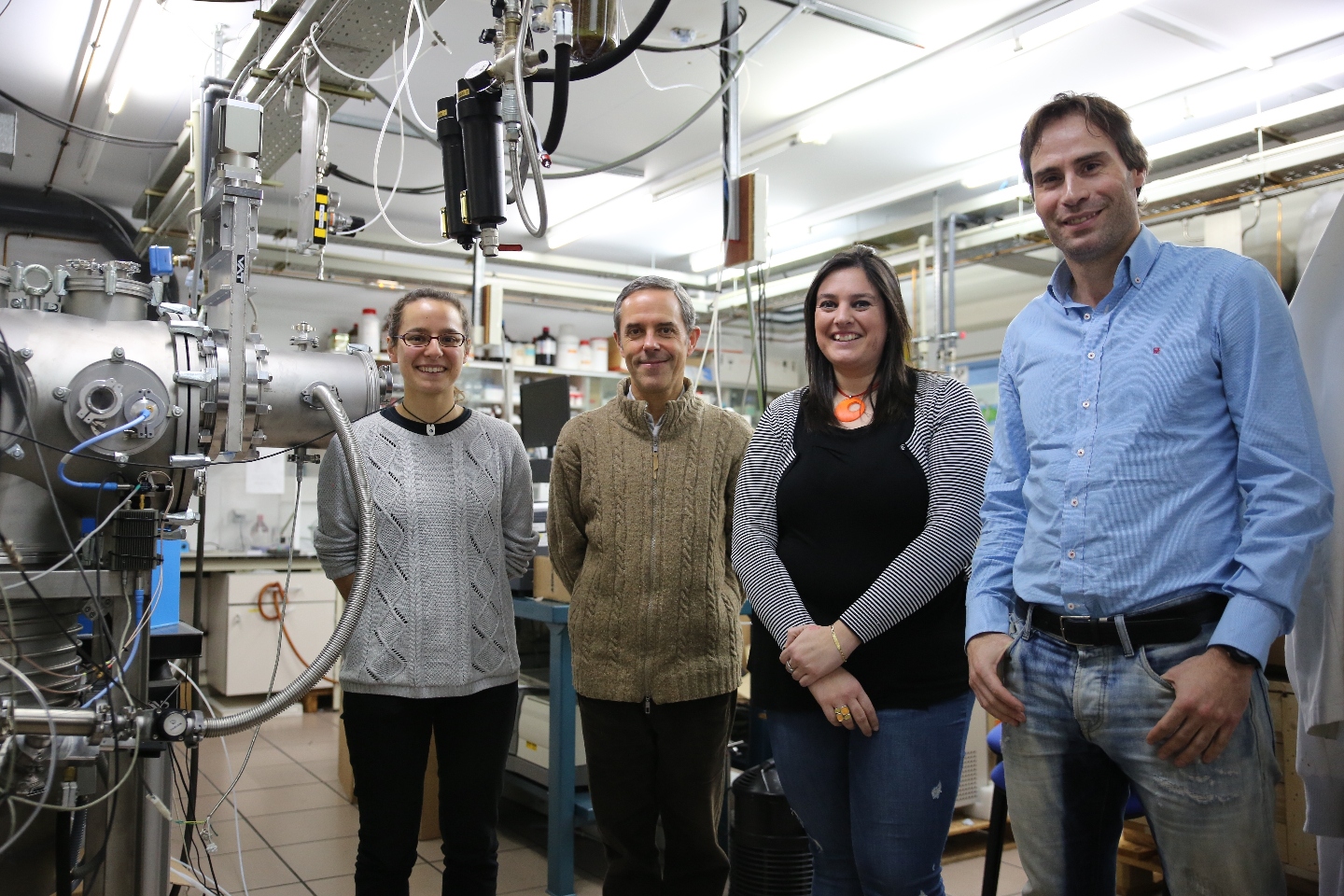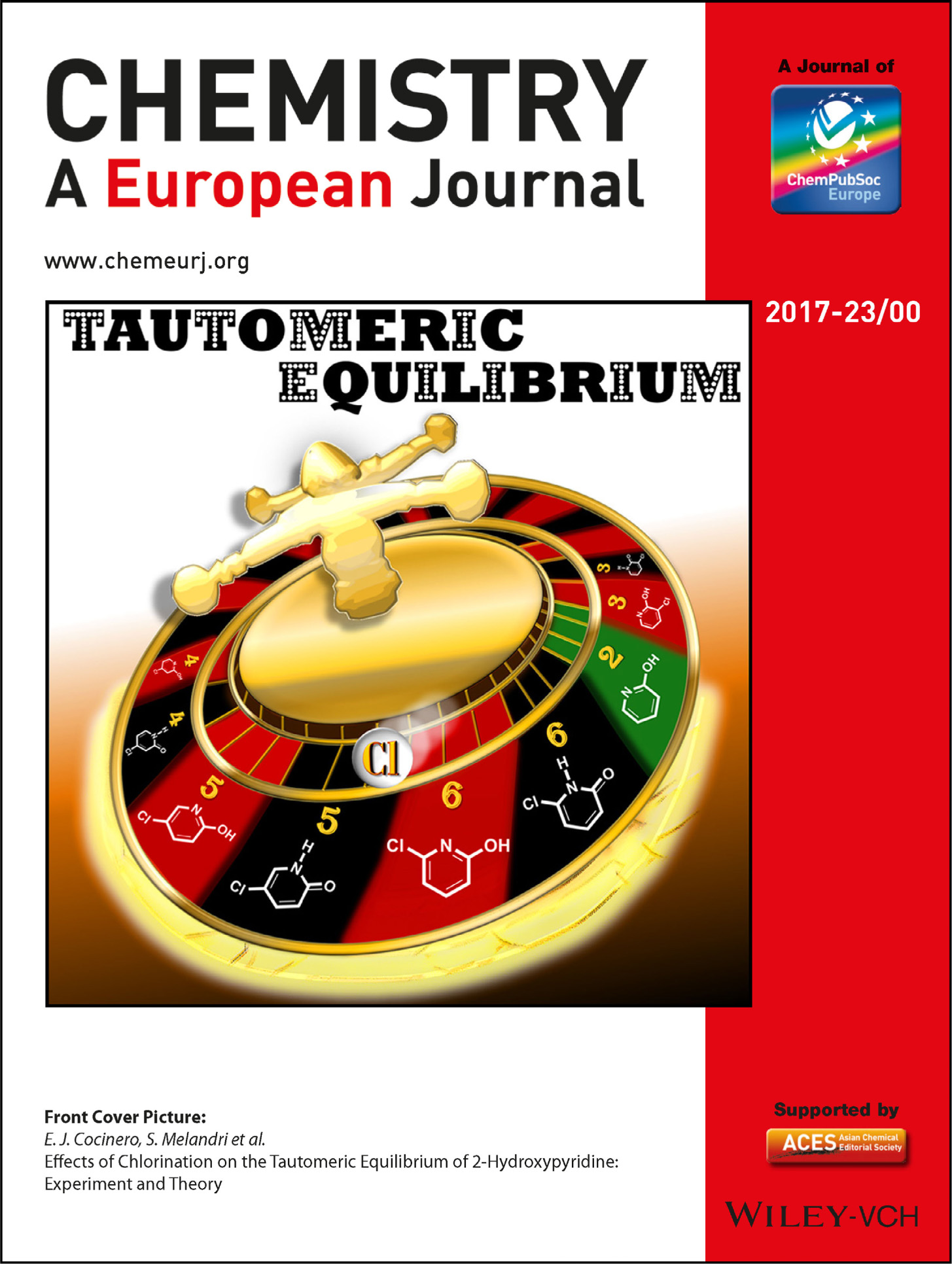A piece of research in which a group in the UPV/EHU's department of Physical Chemistry collaborated has resolved the tautomeric equilibrium of a model system of great biological interest. The work was made possible by setting up a piece of equipment that they themselves developed to characterise sets of molecules in a very accurate way. The research has thus put an end to the controversy that existed between the prior experiments and theoretical calculations that yielded contradictory and inconclusive results. This research has been selected to form the front cover of the scientific journal Chemistry - A European Journal.
The discrepancy between the theoretical and experimental results of a system is resolved
A piece of collaborative work between the UPV/EHU-University of the Basque Country and the University of Bologna has been the cover of Chemistry - A European Journal
- Research
First publication date: 20/01/2017

Chemistry - A European Journal has rated as "hugely important" the research work conducted by the Microwave Group of the UPV/EHU's department of Physical Chemistry in collaboration with a group at the University of Bologna (Italy). So much so that it will be on the journal's front cover. Emilio J. Cocinero, lecturer and researcher in the department and one of the authors of the study, feels that it is "an incentive to go on working and a miracle that it is possible to go on producing quality science in this country where investment in research is low".
One of the reasons why this rating has been received is that the study solves a problem that emerges between the different molecular structures in a tautomeric balance of great biological importance. It appears in DNA strands, for example. Tautomeric equilibrium is the name given to various structures that are differentiated only by the position of a functional group, and there is a chemical equilibrium between the structures and there is migration of an atom or group. The study targeted the 2-hydroxypyridine/2-pyridone model system, where three structures coexist under the same molecular formula and the difference between them lies in the position adopted by the different atoms that comprise it. "As they have different structures, they will also perform different biological functions," explained Cocinero.
In the case we are dealing with here, "the prior experiments yielded contradictory results indicating different structures as the predominant form and depending on how the experiment had been carried out. The theoretical calculations did not solve the problem either, because according to the methodology used, they once again yielded various responses, without being able to establish which one was the dominant form in this equilibrium that is hugely important in biological terms," explained Cocinero. Their research, however, has solved this situation.
More accurate characterisation
For their study they took as the starting point the fact that the tautomeric equilibrium of this system largely depends on the medium in which it finds itself as well as the state in which it is in, in other words, whether it is in the solid state, in solution or in the gas phase. In order to prevent interferences that could be exerted by the medium on this system, "the first thing was to characterise the structure of the molecules while keeping them isolated and taking a single molecule," explained Cocinero. For the characterisation they used "microwave spectroscopy, the most accurate structural characterisation technique currently existing, and which very few groups in the world have as no commercial equipment exists," he added.
They then carried out theoretical simulations taking the effect of different solutions into consideration. These calculations enabled them to correct the systematic error that was produced in the theoretical simulations using the values observed experimentally in the laboratory and they inserted corrections to predict other analogous systems.
Throughout the experimental work they were particularly interested in determining the effect of adding a chlorine molecule to the system and gradually varying the position in which it was inserted into its structure. Cocinero explains it thus: "Chlorine appears in many chemical systems, and it is an easy way to modify the properties of the molecule by boosting one of the structures over the others and therefore modulating the function it is going to perform in nature. The inserting of atoms, groups or external elements is a widely-used methodology in the design of drugs to achieve the desired effect or response," explained the researcher.
Photos: Fernando Casabella. UPV/EHU.
Bibliographic reference
- Effects of Chlorination on the Tautomeric Equilibrium of 2-Hydroxypyridine: Experiment and Theory
- Chemistry - A European Journal
- DOI: 10.1002/chem.201604891








